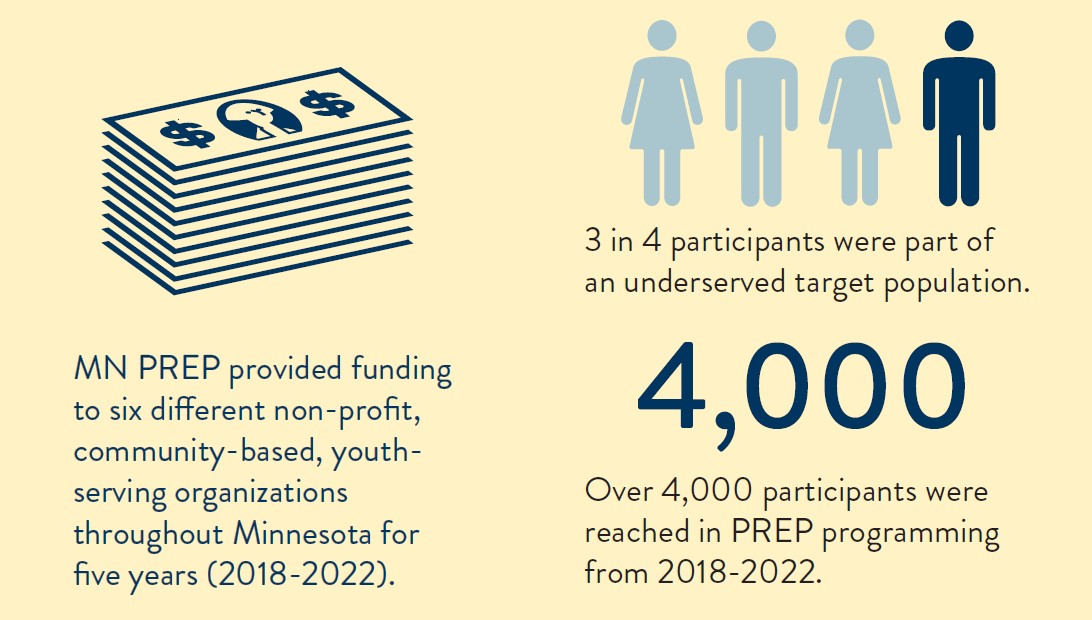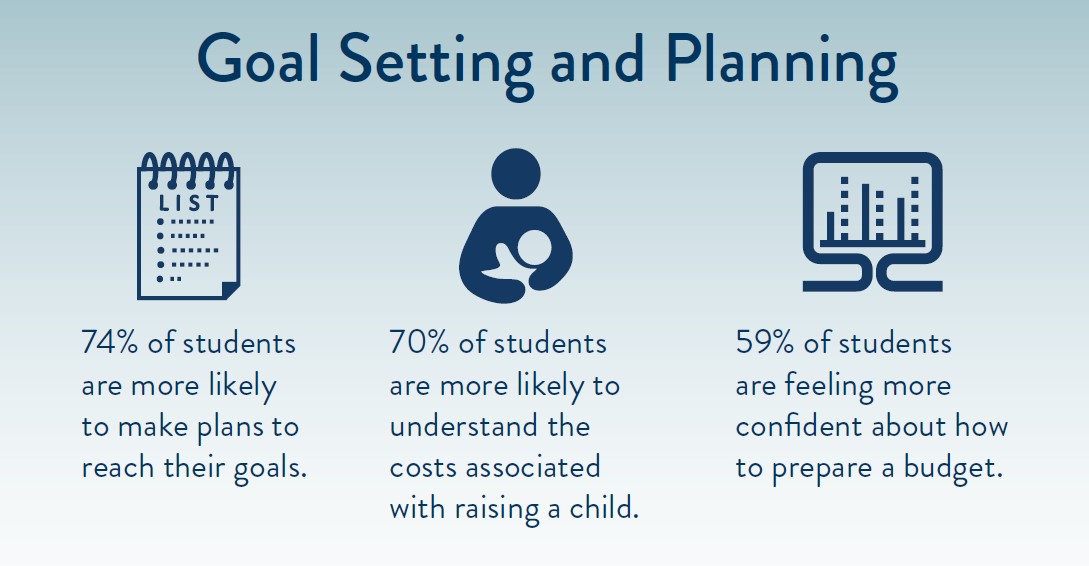Personal Responsibility Education Program (PREP)
- PREP Home
- PREP Nationally
- PREP Grantee Success Stories
- Adult Preparation/Life Skills
- Evidence-Based Curricula
- Funded Communities
- Performance Measures
Related MDH Programs
Personal Responsibility Education Program
Grantee Success Stories - Minnesota
Minnesota finished its last five-year grant cycle on September 30, 2022. Grantees were asked to provide stories of any special memories or accomplishments from their programs. This information was supplemented with PREP survey data.
MN PREP (Personal Responsibility Education Program) is a statewide program offered through a competitive request for proposal process that aims to decrease teen pregnancy and STI rates in populations experiencing the greatest disparities by increasing protective factors and decreasing risk factors.
Grantees are non-profit community-based youth-serving organizations, clinics serving teens, other related organizations, and alternative schools. MN PREP grantees serve youth from targeted populations.

MN PREP provided funding to six different non-profit community-based, youth-serving organizations through Minnesota for five years (2018-2022). Over 4,000 participants were reached in PREP programming during that period and 3 in 4 participants were part of an underserved target population.
MN PREP Grantee Success Stories Infographic (PDF)
The following are some examples of how the MN PREP program is having positive effects on Minnesota youth.
Lutheran Social Services of MN
- This question was asked during a discussion: "If you see people harassing others around you, what can you do?" Our students led us in a discussion about how talking to your peers about the consequences of their actions can be a valuable tool; one young man raised his hand and said confidently: “I think we can be the generation that ends street harassment."
- “One of our participants started coming to the truancy intervention group because it was mandated by her caseworker. She didn’t really participate and when she did, it was often disruptive. Over time, she grew to trust us and started participating more. We discussed goal setting and asked students to come up with SMART goals to share with the group. Without any prompting, this student stated: “This week, I’m going to figure out with the school social worker how many more credits I need to graduate and by the end of the month I will make a plan to graduate on time.” Not only did she achieve this goal (and go on to graduate), shortly thereafter she became a peer educator to teach others at her school about STIs and prevention.”

Goal setting and planning was an area that showed 74% of students more likely to make plans to reach their goals, 70% of students are more likely to understand the costs associated with raising a child, and 59% of students are feeling more confident about how to prepare a budget.
Family Tree Clinic
- “I tasked the youth involved in our programming at Ramsey Juvenile Detention Center to think of an affirmation or a goal for the next year. Many youth were open with me about their dreams for the future. We came up with plans or action steps for them to take in accomplishing their goals. It was so nice to hear all of their conviction in completing the goals they set for themselves. Many said they want to stop the cycle of being in and out of jail, and with that we came up with various SMART goals and actions for them to take towards achieving their goals. One youth in particular expressed wanting to become a mechanic, so we found a potential program for her to start once she is of age.”
Minneapolis School Based Clinics
- “The Safer Sex Intervention (SSI) education is a one-to-one, evidence-based, unique intervention. We have seen how taking this individual time to meet with young people to explore their motivation for change has been incredibly meaningful and led to positive behavior changes. Teens have been able to get better connected with our clinics and been able to successfully use an effective form of birth control after meeting with a health educator and participating in SSI. We have also seen how others have been able to make decisions that were healthy for them, such as taking a break from sex, having open and honest conversations with their partners about using condoms and getting tested for sexually transmitted infections.”
